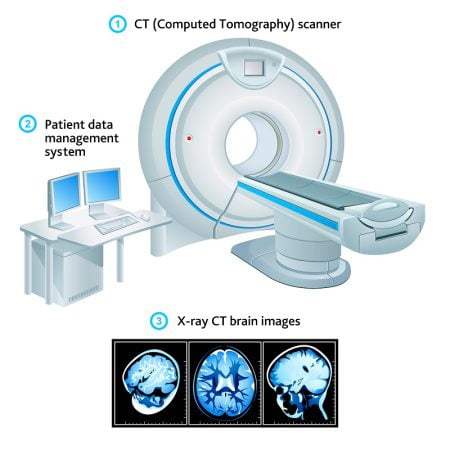Early Signs of Pelvic Inflammatory Disease
- Updated on: Nov 16, 2023
- 3 min Read
- Published on Apr 17, 2020
Pelvic Inflammatory Disease (PID) is an infection of reproductive organs caused by bacterial invasion inside the cervix region and spread to fallopian tube, uterus and ovaries. PID is a common infection and over one million women in the United States experience it every year.
If PID is left untreated, it can cause serious fertility complications. It is one of the leading causes of preventable infertility in women.
What are the Early Signs of Pelvic Inflammatory Disease?
The early signs of pelvic inflammatory disease include:
Lower Abdominal or Pelvic Pain
When bacteria (responsible for sexually transmitted disease) enter the reproductive organs and causes inflammation, there occurs an intense pain.
Lower abdominal pain is quite common in usual conditions, but the pain caused by pelvic inflammatory disease is easily noticeable and much more aggressive than regular menstrual cramping. If you feel intense cramping or shooting pain in your lower abdomen or pelvis, consult your healthcare provider or doctor immediately—especially if you are not having periods.
Vaginal Discharge with an Odor
Usually small amounts of clear vaginal discharge are normal, but if you experience an excessive amount of discharge accompanied by an unusual odor, it may be a symptom of pelvic inflammatory disease. You may not notice accompanying pelvic pain if the infection has not yet reached the uterus through cervix.
Recognizing the symptoms of pelvic inflammatory disease before they reach your reproductive organs is the best way to prevent infertility. If you are suffering from an abundance of vaginal discharge and an accompanying odor, consult your doctor.
Painful Urination
Painful urination is a usual symptom of a bladder infection. If PID is left untreated, the bladder infection can become worse and travel into your uterus or ovaries, causing pelvic inflammatory disease.
If you are feeling intense pain while urinating, your doctor will test your urine for infection. Tell everything to your doctor including your pain level.
Extreme pain while urination is a classic symptom of PID, and may need to be treated with strong doses of antibiotics than a mere bladder infection.
High Fever (Over 101 Degrees)
A fever with temperature greater than 101 degree is a sign that your body is fighting an infection. If your fever lasts for more than a few days, consult your doctor to evaluate your symptoms.
A high fever is not always a symptom of PID. However, if the fever is accompanied with pelvic pain or vaginal discharge with foul smell, it is a strong indication that you are having the symptoms of pelvic inflammatory disease.
You should consulty your doctor, if your fever lasts for more than two days.
Pain During Intercourse
If you are suffering from pain during intercourse, it can be an indication of pelvic inflammatory disease. It can also be possible that you have a bladder or yeast infection, or that the vaginal area has been irritated by frequent sexual activity. Bacterial infections can result in pelvic inflammatory disease if left untreated.
If your pelvic inflammatory disease is diagnosed early, it can be treated with a simple round of antibiotics as prescribed by the doctors.
Do not let pelvic inflammatory disease unchecked or your pelvic inflammatory disease could possibly leave you infertile and can lead to long-term health problems.
When you experience any of the above mentioned common PID early symptoms, call your doctor as soon as possible.
Confusion Between Urinary Tract Infection (UTI) and Pelvic Inflammatory Infection (PID)
There are some confusing symptoms which are similar in both UTI and PID. Both UTI and PID cause burning sensation during urination and there is a difficulty in urination accompanied with high fever.
The differential symptoms of urinary tract infection are:
- Dark, bloody, cloudy or strange-smelling pee.
- Feeling tired and sometimes shaky.
- Extreme pain or pressure in your back or lower abdomen.
FAQs
Does PID Cause Odor?
Yes, Pelvic inflammatory disease, or PID can cause heavy vaginal discharge with foul odor. PID is an infection of the female reproductive organs (fallopian tube, uterus and ovaries). When the infection gets worse, you can experience pain in your lower belly and pelvis.
Can BV Lead To Pelvic Inflammatory Disease?
Yes, bacterial vaginosis (BV) can lead to pelvic inflammatory disease. PID is the infection and inflammation of the female genital organs, which results in serious reproductive morbidity including infertility and ectopic pregnancy. BV is an alteration of the vaginal flora that has been implicated in PID.
What Does PID Pain Feel Like?
The symptom of PID is pain in the lower abdomen. The pain may be so mild that you hardly notice it and that you may not even be able to stand. You may feel tightness, tenderness or pressure in the reproductive organs, or an occasional dull ache.
How Can I Test Myself for PID?
There are some diagnostic tests for pelvic inflammatory disease (PID). It can be diagnosed based on your symptoms:
- Urine test or blood test
- Laparoscopy
- Ultrasound scan, which is carried out using a probe passed through the vagina (transvaginal ultrasound)












